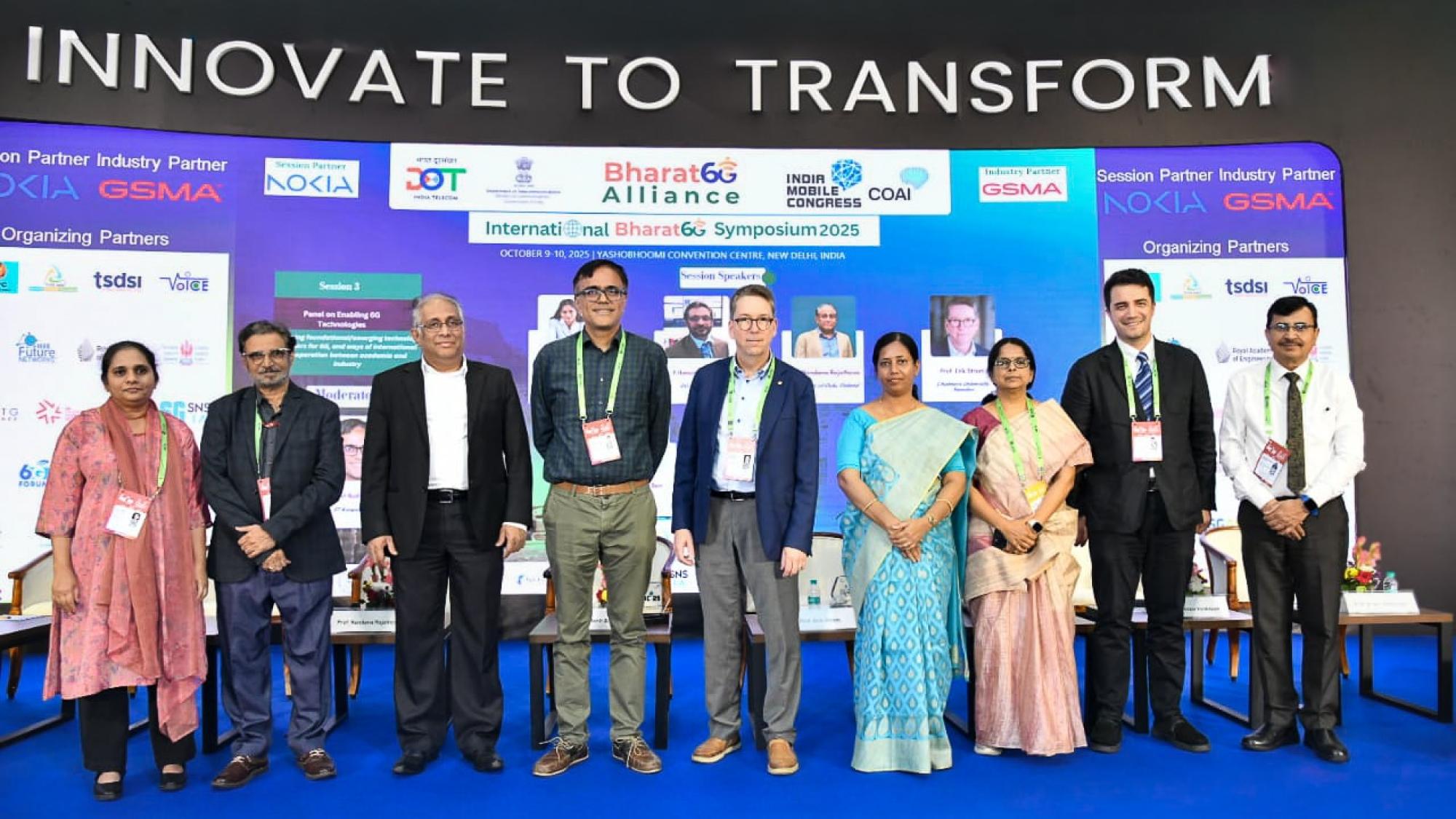6G Flagship among nine global signatories of landmark Delhi declaration

Nine prominent organisations from across the globe have signed a landmark agreement known as the Delhi Declaration. It strengthens their joint commitment to developing a secure, interoperable, and equitable 6G ecosystem. Coordinated by India’s Bharat 6G Alliance, the declaration was signed in New Delhi as global 6G standardisation enters its early phase.
The signatories include 6G organisations from India, the United States, the EU, the UK, South Korea, Japan, Germany, Brazil, and Finland. From Europe, the 6G Flagship and the 6G Industry Association are among the original signatories. Professor Nandana Rajatheva, 6G Flagship, represented the University of Oulu at the event in New Delhi.
The Delhi Declaration sets out common principles for developing 6G as a global public good. It calls for open standards, joint research, and systems that are secure, trustworthy, and accessible. The signatories emphasise cooperation across borders, across land, sea, air, and space, and stress the need for long-term sustainability.
“The declaration strengthens an important global approach towards a global standard in 6G,” said Professor Ari Pouttu, Director of 6G Flagship. “It’s a clear message that 6G development must be international, transparent, and geared toward long-term public benefit.”
The joint statement sets out nine core principles covering areas such as trusted and secure technology, open and interoperable innovation, energy efficiency, global coverage, and spectrum and supply chain diversity. It also emphasises privacy, responsible use of AI, and the need to bridge digital divides. In addition to outlining technical goals, the declaration includes a call to action inviting global research alliances, industry, and civil society to work together toward a 6G future that serves all.
This is the first time so many key 6G organisations have endorsed a shared set of principles under a single agreement. Indian officials say the aim is to ensure that 6G supports global digital inclusion and long-term sustainability, rather than serving only narrow commercial or geopolitical goals.
The declaration sets a direction for future research and technical work as standardisation begins, and its timing is seen as strategically significant.
Signatories of the Delhi Declaration
Each of the signatory organisations plays a leading role in shaping 6G research, innovation, and early ecosystem development for the next generation of wireless technologies.
- Bharat 6G Alliance (India)
- Next G Alliance (USA)
- 6G Smart Networks and Services Industry Association (6G-IA, Europe)
- 6G Flagship (Finland)
- Beyond 5G Promotion Consortium (Japan)
- 6G Innovation Centre (UK)
- 6G Forum (South Korea)
- Thinknet 6G (Germany)
- Open 6G Association (Brazil)
The Delhi Declaration is expected to be the last major global research agreement on 6G before the focus shifts to technical development and formal standard-setting led by industry and regulators.